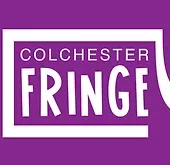Edinburgh Fringe 2025
The Sound of Water
Center Heart Theater Company

Genre: Theatre
Venue: The Space @ Venue 45
Festival: Edinburgh Fringe
Low Down
The Sound of Water is a play with an important theme: The finite resource of water. Devised writing with a talented young ensemble from the US, it sets a portentous tone to reflect its anxiety-inducing subject.
Review
This is an original and pertinent piece that works as a tragic love story of contemporary theatre. Poetic and questioning rather than didactic, it offers a disturbing juxtaposition, in a near future of ecological collapse.
A small group of people live in an isolated part of Mid-West USA. Katherine plays an archetypal gal with a sixth sense, in touch with the land she grew up on; Tobias is the stubborn farmer trenchantly holding on to his traditions. The world is changing, armageddon harkens.
The style is dynamic and physical, reflecting the infinite flow of water. The Sound of Water evokes its very finiteness, especially in the dry climate where it is set, as if the characters can hear water but not quite get to it. The small community rely on the canyon where water is rapidly diminishing. The farmer, Tobias, grows crops and relies on it. He is trying new methods in which to extract and collect it in a traditional way, but a more technologically advanced method arrives with the character Jacob, setting the overall conflict.
Katherine, the protagonist of this piece, starts off the action as she runs urgently on to the stage to deliver an important message to the audience about herself and the subject of the play. Comforting Americana music lures us in as the characters dance on to the stage and join hands in a familiar farmyard waltz style, but this bucolic scene is dissected by the ominous toll of a siren and the now familiar tone of impending apocalypse, a booming call requesting people go to the city for water. The dance continues, clashing and mingling, evoking the counteractive nature of the world we know and its possible collapse.
There are many classic oppositions at play here: Man vs machine, past vs future, man vs nature, rural vs urban, man vs woman. This reflects in one way the complexity of the subject, but also the adversity that is invoked in people when resources are scarce. It is a time worn clash of the titans dynamic brought to the forefront when it is happening now, to all of us.
The action increases in tension as the interloper Jacob, representing the outside force of technological change, binds with Katherine, the questioning voice of the old world, through romantic kinship. The other characters act as foils, antagonisers and helpers that help the couple’s path into the heart of the canyon in search of the water that Susan has heard there under the ground, just out of reach.
There is an eerie use of sound throughout, music merging with watery sound effects, matching this is the physical style of the ensemble, maneuvering Katherine through her musings on water and how her life is so intertwined with it.
The actress playing Katherine stands out here, she is committed and passionate as a performer.
It is a stark piece, with effective, mood based lighting. The direction, by Julia Ott, is fluid and precise, and you get the feeling she is familiar with this subject and its physical environment. The complete absence of props may have been a conscious decision to heighten its liminal spatial element, but perhaps some dust, a plant, some actual water, or two opposing objects, could have brought even more depth. Water in any form was conspicuous by its absence. In this way the tone was almost ghostly, like an echo lost in time, and I suspect this was what was intended.
I was gripped throughout this play, it delivers us an important message with a quietly urgent voice. There is lot is fit into 50 minutes, and I think in another form, an extra half an hour would greatly increase its power.
Deserves to be seen.




























